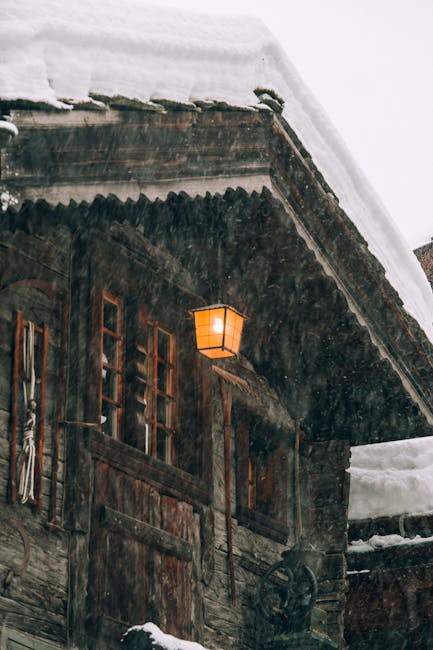Nashville Severe Weather: A Comprehensive Guide to Preparedness and Safety
Nashville Severe Weather: A Comprehensive Guide to Preparedness and Safety
Nashville, Tennessee, a vibrant city known for its music scene and Southern charm, also faces the significant threat of severe weather. From tornadoes and thunderstorms to flash floods and winter storms, understanding the risks and taking proactive steps is crucial for residents and visitors alike. This comprehensive guide delves into the types of severe weather Nashville experiences, provides essential safety tips, and outlines preparedness strategies to ensure your safety and the well-being of your community.
Understanding Nashville’s Severe Weather Threats
Nashville’s location in the Southeastern United States places it squarely within the path of various severe weather systems. The warm, moist air from the Gulf of Mexico colliding with cooler air masses often leads to the development of powerful storms. Let’s break down the primary threats:
Tornadoes
Tornadoes are perhaps the most significant severe weather threat to Nashville. The city’s position within Tornado Alley, a region prone to intense tornadoes, necessitates constant vigilance. These rotating columns of air can cause devastating damage, including structural collapse, injuries, and fatalities. Understanding tornado formation, warning signs, and safe practices is critical.
Severe Thunderstorms
Severe thunderstorms are frequent occurrences in Nashville, often bringing strong winds, heavy rainfall, hail, and lightning. These storms can lead to power outages, flash flooding, and damage to property. Knowing how to identify approaching severe thunderstorms and taking appropriate shelter is vital.
Flash Floods
Heavy rainfall, often associated with severe thunderstorms, can quickly overwhelm drainage systems, leading to flash floods. These sudden and powerful floods can pose a significant risk, especially in low-lying areas and near water bodies. Understanding flood risks and evacuation routes is crucial.

Winter Storms
While less frequent than other severe weather events, winter storms can significantly impact Nashville. Freezing rain, snow, and ice can create hazardous driving conditions, power outages, and disruptions to daily life. Preparation for winter storms involves stocking up on essential supplies and taking precautions to ensure safety.
Preparing for Severe Weather in Nashville
Proactive preparation is essential to mitigating the risks associated with severe weather. Here’s a detailed guide to ensure you and your loved ones are well-prepared:
Developing a Family Emergency Plan
A well-defined family emergency plan is crucial. This plan should include:
- Designated meeting points: Choose multiple locations in case one is inaccessible.
- Emergency contacts: Establish a list of reliable contacts outside the immediate area.
- Emergency kit: Prepare a comprehensive kit with essential supplies, including water, non-perishable food, first-aid supplies, medications, flashlights, batteries, and a portable radio.
- Evacuation routes: Identify multiple escape routes from your home and familiarize yourself with designated shelters.
Monitoring Weather Forecasts
Staying informed about weather forecasts is paramount. Utilize reliable sources such as the National Weather Service (NWS), local news channels, and weather apps. Pay close attention to weather alerts and warnings issued by these sources.
Building a Robust Emergency Kit
Your emergency kit should include:
- Water: One gallon per person per day for at least three days.
- Food: Non-perishable items that require no refrigeration or cooking.
- First-aid kit: Including bandages, antiseptic wipes, pain relievers, and any necessary prescription medications.
- Flashlight and extra batteries: For illumination during power outages.
- Portable radio: To receive weather updates and emergency broadcasts.
- Whistle: To signal for help.
- Dust mask: To protect against dust and debris.
- Moist towelettes, garbage bags, and plastic ties: For personal sanitation.
- Manual can opener for food: For easy access to canned goods.
- Local maps: In case electronic devices are unavailable.
Responding to Severe Weather Warnings
When severe weather warnings are issued, it’s crucial to act quickly and decisively:

Tornado Warnings
Seek immediate shelter in a sturdy building’s interior, preferably a basement or interior room on the lowest level. Avoid windows and stay away from exterior walls. If you’re in a vehicle, abandon it and seek shelter in a nearby sturdy building. If no shelter is available, lie flat in a ditch or low-lying area, covering your head.
Severe Thunderstorm Warnings
Move indoors to a sturdy building or vehicle. Avoid contact with water and metal objects during lightning storms. Stay away from windows and doors.
Flash Flood Warnings
Do not attempt to drive or walk through flood waters. Evacuate immediately if instructed to do so by authorities. Move to higher ground if possible.
Winter Storm Warnings
Stay indoors unless absolutely necessary. If you must travel, ensure your vehicle is equipped for winter conditions. Dress warmly and in layers. Keep a close eye on weather conditions.
Post-Severe Weather Actions
After a severe weather event, taking appropriate actions is crucial for safety and recovery:
- Check for injuries: Provide first aid if needed and contact emergency services.
- Assess damage: Report any damage to your property to your insurance company.
- Conserve resources: Ration your emergency supplies until help arrives.
- Stay informed: Monitor news reports and official announcements for updates.
- Cooperate with authorities: Follow any instructions from emergency personnel.
Nashville’s susceptibility to severe weather demands constant preparedness and vigilance. By understanding the risks, developing a robust emergency plan, and taking prompt action during warnings, you can significantly reduce your vulnerability and safeguard your well-being during severe weather events.








